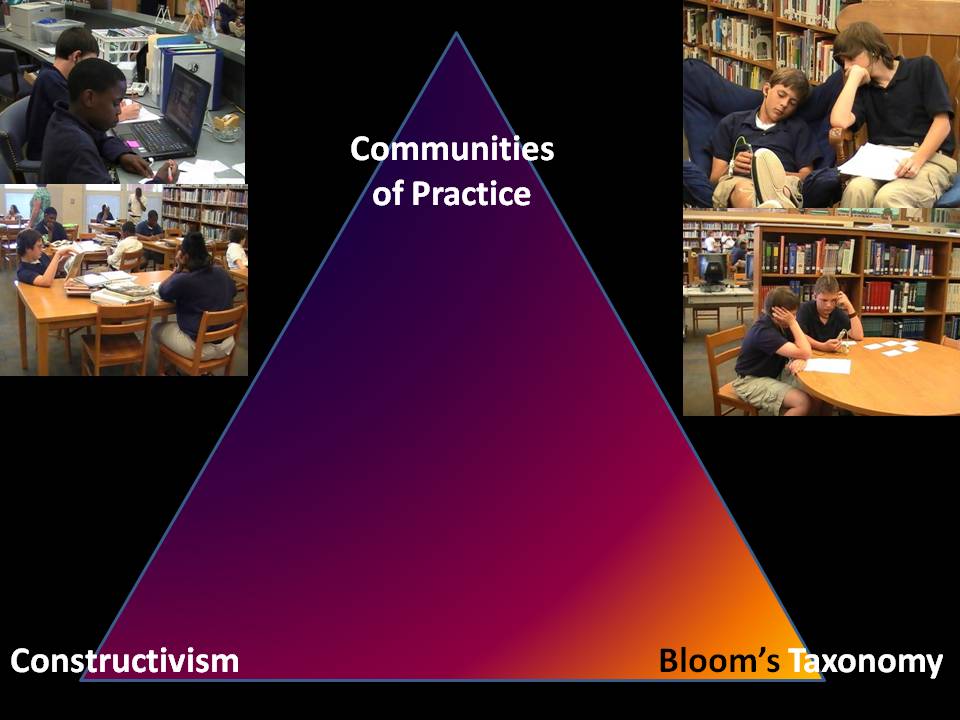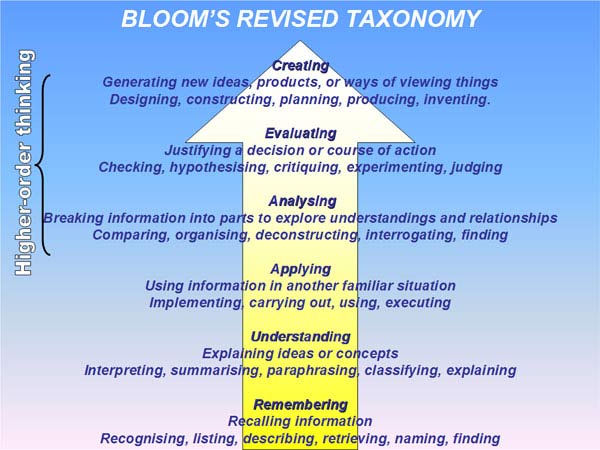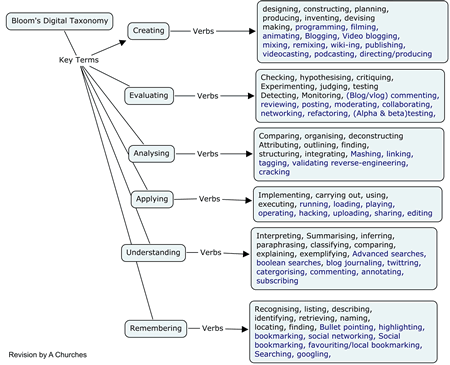
1. Bloom's Taxonomy
Developed by Benjamin Bloom, this taxonomy refers to a classification of learning objectives which range from lower-order thinking skills to higher-order thinking skills. Originally proposed in the 1950s, Bloom's Taxonomy has undergone several revisions but remains a pertinent aspect of the learning process, particularly in this digital age.
 |
 |
http://edorigami.wikispaces.com/Bloom%27s+Digital+Taxonomy |
2. Constructivism
Influenced by the work of Piaget and Vygotsky, constructivism supports the premise that humans learn by doing; we generate knowledge and meaning from our experiences. Through the processes of assimilation and accomodation, new knowledge is constructed. Learners are viewed as unique and complex, with each learner bringing a different background to the learning experience. Learning is viewed as active rather than passive with instructors serving as facilitators rather than as sages. Dynamic interaction between the learner, instructor and task is a crucial element of the process with collaboration occurring between learners.
3. Communities of Practice
Developed by Lave and Wegner, CoP refers to a group which evolves from having a common interest, craft or profession. As the group shares information and experiences within the group, the members learn from each other; developing themselves personally and professionally. Technology supports both synchronous and asynchronous communication formats to enable discussions, conversations and shared experiences which transcend the confines of the classroom walls and encompass a variety of perspectives from participants in a Community of Practice.
The melding of these three core tenets forms the base of my instructional program.